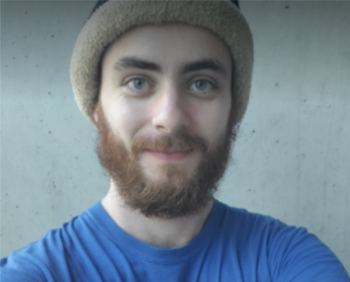Sam Cree (Physics) | Developing Efficient Quantum Algorithms (Max Planck Institute for Quantum Optics)
Sam Cree (Physics) | Developing Efficient Quantum Algorithms (Max Planck Institute for Quantum Optics)

For my GRIP Internship, I visited the Max Planck Institute for Quantum Optics in Garching bei München during July and August of 2022. I visited the group of Prof. Ignacio Cirac, who work in quantum information theory - the field in which I am doing my PhD at Stanford under Patrick Hayden. Their interests are more focused on applications to many-body quantum systems and to optical systems than those of our group, and I hoped to leverage my more theoretical background to make contributions to their research program.
I applied several of the ideas that I had developed working with my Stanford supervisor, Patrick Hayden, to a problem that Cirac’s group had been thinking about for some time, namely developing efficient quantum algorithms for preparing thermal states in quantum systems. I worked a lot with the postdoc Alvaro Alhambra, and we tried several different approaches to developing such algorithms. Although none of the algorithms that we developed improved upon the state-of-the-art in terms of efficiency, it was a beneficial learning experience for both of us, and I expect the ideas I was exposed to to be useful in future research.
One of the algorithms that we developed involved applying a method of reversing the erasure of quantum information known as the Petz recovery map. This is a method that I have written on in publications with Jon Sorce, a fellow graduate student at Stanford. In those works, we proved the effectiveness of this recovery map provided certain mathematical conditions were satisfied. Alvaro proposed that we repeatedly apply this recovery procedure to sections of a one-dimensional array of quantum systems, in a manner similar to certain existing algorithms for preparing thermal states. In this way, we hoped to use my previous results to prove the effectiveness of the recovery, and thus the validity of the algorithm. Although we believe this map may be a promising one, we found it challenging to rigorously prove that the necessary mathematical conditions were satisfied.
Another algorithm that we developed involved breaking up the preparation procedure into several small chunks - a common strategy in such algorithms. Here, we used a novel combination of existing results in the literature to demonstrate the efficiency of this algorithm. However, it was still less efficient than existing state of-the-art algorithms.
One benefit from this study was the realization that several algorithms have the right properties (specifically, a decomposition into a small number of medium sized components) to be used in another context that I have previously studied.
This is the problem of non-local quantum computation, which I have worked on with Alex May and Kfir Dolev. With Kfir Dolev, I had previously shown that this category of algorithms can be implemented non-locally by two parties using a manageable amount of a quantum resource called entanglement; something that is not true for typical algorithms.
I greatly enjoyed the experience of living in Europe, and had a positive impression of Munich in particular. I found the public transport and high population density made it easy to access a diverse range of events and venues such as restaurants, museums, galleries, and parks. The social atmosphere of the group was friendly and welcoming, and after spending some time in Munich, I intend to apply for a postdoctoral position there.
